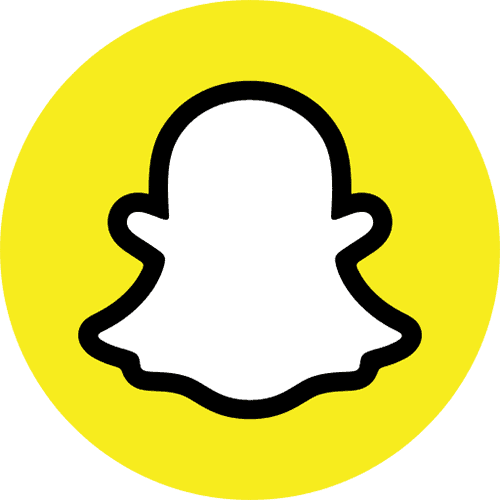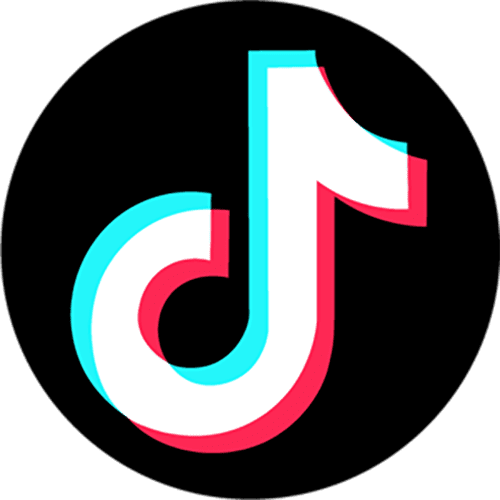This was an Interview I gave to New media Rockstars conducted by Benny Luo
Posted by Benny Luo on Friday, April 12, 2013 ·
I first discovered Gary Vaynerchuk back in 2008 when my friend shared a YouTube video recording of one of his famous talks at Web 2.0 Expo NY. I was immediately drawn into his energy, charisma and knowledge in building a successful online business.
Gary’s rise began when he recognized the importance of e-commerce and took his $3 million a year family business in 1997 and turned it into $45 million a year one by 2005. He has been featured on “The Ellen Show” and “Late Night with Conan O’Brien,” and is a two-time New York Times best-selling author. He also currently owns a successful social media branding agency that helps brands like Pepsi, the New York Jets and Campbell’s in their social media and online branding campaigns.
Whether you are a creator who is looking to monetize your online brand or a person who is just trying to sell a product or make money online, Gary Vaynerchuk is relevant to you. Check out one of his keynotes below:
I recently had the pleasure of speaking with Gary over the phone. In this exclusive interview, Gary shares his thoughts on the YouTube and online video space, why his company VaynerMedia is better than all the other social media branding agencies that are out there, and shares some advice from the book he’s currently writing, “Jab, Jab, Jab, Right Hook.”
What’s your daily schedule like nowadays? I’m assuming it’s crazy.
Yeah, these days are kind of interesting. I mean I’m spending the majority of my time running VaynerMedia which is a 250-person social media agency. It’s quite busy; we’re doing quite a bit. I’m spending less time in the wine world, a little less time speaking, but I’m still doing quite a bit of that. I’m writing my second book “Jab, Jab, Jab, Right Hook,” so I’m staying quite busy.
And so just to start off with a fun question, what’s the last great movie you saw?
Last great movie, so I would say “Django Unchained.” Saw it a couple months ago, I really liked it. Favorite Quentin movie including all the ones that get dramatically more accolades, but I really enjoyed myself so I would go with that.
What’s your favorite YouTube video of the moment?
Favorite YouTube video of the moment … so I don’t consume a lot of YouTube videos. I’m not quite sure why. Just barely trying to answer every email that I get and every engagement of Twitter. My consumption on YouTube is low, but I would say that there is a video I saw not too long ago that talked about two kids who were talking about their parents — it was only under 400 views — so somebody sent it to me and I liked it, so I would say that.
You once mentioned that one of the things you’d done to show people you cared was that you answered every single one of your emails. Obviously since then your brand and popularity have grown tremendously, so do you still have time to answer all your emails?
I don’t. I kind of unfortunately succumbed to the mass of it all. I still try very, very heavily and spend lots of time answering quite a few, but I wouldn’t be able to say let’s get back in a week that I’m able to get to all of them. I’m still very, I’d say 80 percent, so it’s still pretty incredible. Anybody who really wants to get a hold of me, that second or third email, I got pretty good memory, and you know, I tend to remember things when I see the names come through multiple times, and I’ll make sure I get to those. But at this point I’d say I’m about 80 percent, which is still pretty incredible because I’m getting thousands, two thousand a day.
Why was it so important at the time to show people you cared? Is putting forth the effort of giving micro-attention to individuals something you recommend to be successful?
Yeah, I mean I still think it’s important to me now; it just becomes literally a mathematical equation that you can’t solve, right? I don’t understand people who don’t recognize that the world is predicated on relationships and people and giving effort to another human being, whether they’re at the top of the game or at the bottom of the game. I think there are two very different kind of thought processes and outcomes for somebody who is very influential on top of the game, somebody you do business with, somebody who’s famous, whatever the case may be. That’s a very obvious reason to engage with them. But to me a lot of times the people that are climbing up the ranks, you never know where people are going to end up, where they are going to be, and I’m always willing to invest in relationships and play the marathon instead of the sprint, and so that’s why I kind of think it’s important. I don’t know, especially when you’re in a position where, you know like for me, people actually want to say hello to you or give you nice compliments or just want your attention for five seconds and it means something to them, I’m flattered — I’m so taken with gratitude I don’t know how I could under-deliver to somebody like that.
In the past you spent a lot of your time talking about your thoughts on marketing and storytelling through new media. What is your personal assessment of the exploding YouTube and online video industry at the moment?
That it’s still very early. I think as Google starts wiring the country of the USA like they’ve done in Kansas City and in Austin, Texas, as we get into more second and third and fourth screening experiences, no doubt in my mind there will be ultimate destruction in the traditional way of consuming television. Even though it’s worth a lot, we are still in the extreme early stages, the grounds are still fertile. Video consumption will always be here; it will always be something that matters, and YouTube is a clear leader, an aggressive leader in that space. And I think that it’s very obvious to me that we may not be in the national anthem of a 16-inning game but we’re still probably in the first inning of a 16-inning game right now, and I think there is a lot of upside going toward.
Do you feel that even now brands and businesses can really utilize YouTube to help brand equity and ultimately help their bottom line?
Absolutely. I mean there is such a big audience that it’s consuming, so if you figure out how to natively storytell on YouTube and figure out how to create the kind of content for your consumers that they’ll actually appreciate it, enjoy and want to watch, then it’s easily the one of the top three or four places to produce content for. I would say outside of Facebook, Twitter — I would say Facebook, Twitter and YouTube are three. Instagram and Pinterest maybe could start playing with that, but to me Facebook and YouTube are clear leaders in a place where every brand and business and individual should be very seriously thinking about creating content. Obviously the idea is a much bigger challenge to many people other than work or pictures, and so that’s why its got these unique challenges, but to me it’s the foremost platform in the world.
A lot of YouTubers have difficulty finding other ways to monetize off their audience. Many really just depend solely on Adsense and sponsored videos to gain money, but in reality there are so many other different ways they can utilize their fanbase — what’s your advice to those people that are struggling?
Well, I mean a lot of those people who are struggling are actually just not very good business people, right? So you know one of the funny things is that you could sell subscriptions, you can sell products, you can sell events, and that just comes down to how good you are as a salesperson in this business, woman or man. And so if they are really struggling and they really don’t know what to do, I recommend getting an agent or a manager, or maybe more importantly a business partner, because to me that’s like a laughable statement. There are so many ways to monetize if you’ve actually got a huge audience; you just have to know how to actually do it, and so for me that wasn’t hard for “Wine Library TV.” I sold wristbands, I sold T-shirts, I sold events. Ultimately later when I started doing “Daily Grape” I started selling subscriptions to other reviews, premium content. To just rely on advertising, it makes a lot of sense if you think about it because I think the early pioneers of video on YouTube have to be very heavily predicated on being very creative, and oftentimes there are very few individuals that cross over being both very business monetized-orientated and at the same time being creative enough to create content for those audiences, which is why usually you have a partner or somebody who really knows what they’re doing in that part.
And I think that from my experience too I feel that most people actually struggle building an audience aside from the monetization, so it’s actually a very interesting problem to have.
Yeah, I mean the problem with “Oh woe is me, I have so many people who give a crap about my work and I don’t know how to make money on them,” that’s an easy problem. The first problem is getting people to care about your work is a much heavier and difficult climb.
I think you said in another interview that 95 percent of your focus is on VaynerMedia right now, which is your brand consulting agency that focuses on social media. Now aside from the obvious fact that Gary Vaynerchuk is the man behind it, what are the things that set your company apart from the gazillion other social media branding agencies that are out there right now?
Yeah, I think that’s a really good point. I think probably two things. One, what you already mentioned was I’ve been really decoding this space since 2006 and have built a $70 million business on it. I think for a lot of corporations, Fortune 500s especially, there is a comfort that I am a businessman first, and then I care about social media, so I think that really does matter. And I think two, what matters is we started in 2009 right. We started VaynerMedia in 2009, we’ve been marketing on Facebook and Twitter and Tumblr and Pinterest and Instagram ever since as soon as these platforms have launched. We’ve got four years of work in our portfolio that a lot of people now understand and go to other companies and mention our good work, so we’ve got longevity, and very honestly, this is very egotistical, but it does come down to me and AJ and four or five other people that are at the top of our company who just come down to talent. It’s kind of like saying to Manny Pacquiáo, what separates you from other boxers, or Lebron, what separates you from other basketball players, I’m sure that’s dedication, that’s work that those guys put in their craft, but talent would be a very major factor, and we would be naive and be grossly negligent not to recognize that talent matters. And I think that when it comes to business and technology and ever-changing innovation of business and storytelling, how to storytell on this platform and then ultimately how to monetize and make money from those platforms, I feel very confident in saying that I think I’m at the top of that game and that’s translated into my ability to build this company.
And speaking of that and all your accomplishments, you have this image that you’re this gangster internet marketing master, that you stop at no cost to get things done — is that public perception accurate? And I feel that no one has ever really highlighted what your weaknesses are — what are your personal weaknesses?
That’s a great question. So I think the first one is: I’d like to think so. I’m completely driven by competitive juices; I love competition. I’d much rather win than anything else in the world, so I think the first part to your question probably translated for what I do it’s probably the truth, and the funny part is I think I kind of suck at everything, meaning the only things I talk about are the things I’m good at. But I’m a terrible student, I don’t think I’m very educated, I don’t read a lot, I don’t know everything about everything, I just want to sell and tell stories, and so you know I’ve got plenty of weaknesses. My grammar sucks, very basic stuff, the stuff that 89 percent of the people listening to this interview are good at, I’m not good at. It takes me an hour to beat something that could take someone 10 minutes. Skills that are commodities are something I’m not great at. Here’s the dirty little secret: The world just went in my direction; I got lucky with timing, right? It’s never been less valuable to be a good speller because grammar and spelling get auto-corrected or nobody really cares because they think you’re shorthanding it, right? So like simple little things like that I don’t follow well, but I surround myself with people who do, so the funny things I’m not good at, I just think that what I’m gifted with and what I really preached a lot these days more and more is focusing more on what you’re good at instead of what you’re not good at; you tend to have a much better long-term result that way.
And so you know for a lot of people that are struggling with a lot of weaknesses, would your advice to them be to just keep on trucking, keep pushing, keep working hard and eventually they’ll gain what you seek?
My advice would be to really know yourself and have huge self-awareness. My self-awareness is really my biggest gift; it’s the reason I’ve been able to navigate and only storytell to the world about the things I’m good at and not worry about the things that I’m not good at, so I think that would be the key thing. I would tell them to not truck along but try and keep climbing. I would say try to find people who are naturally good at the things that you’re not good at and have partners that are good at that. I would never want to run the financials or be the CFO or do the lawyer stuff, so I hired the people for that, right? I think too many people try to do things they’re not good at and can’t afford to hire, so then you need to partner. I’ve been fortunate that my partners have been my dad and my brother and I’ve been fortunate that they have different skills than I do and they can leverage it that way.
What is a big failure that you’ve encountered in the past and how did you learn from it? How did it help you grow as a marketer?
Four or five years ago I bought Corkd.com, which is a wine social network, and I also helped launched Forrst, which was a big community for designers and developers by Kyle Bragger, and I hired Lindsay to be the CEO of Corkd. These are two companies I was running at the same time while launching VaynerMedia. I was also doing a web show called “Obsessed TV” at the same time and I was doing “Wine Library” and I was writing books, and I just took on too much and I didn’t support Kyle Bragger or Lindsay Ronga or Samantha Ettus enough to make those three projects of “ObsessedTV,” Corkd.com and Forest work to what I think that the mental promise of what I could have brought to the table was, and I regret that, and I see that as a big failure, as me trying to eat more than I could chew. What I learned was, as talented as I am and as good as I am, I need to do a lot more upfront with the entrepreneurs that I choose to be my partners to help them succeed and allocate my time more properly, and more importantly be realistic with myself upfront before I embark on new adventures, so that was a big, big, big learning experience.
So basically the lesson there is focus on one thing first.
And not really because I want to make sure it’s not that it’s one thing, because I was able to carry building my personal brand, writing books, building that speaking career and book writing career while running “Wine Library,” while also helping AJ build up VaynerMedia so I can do more than one, I just wasn’t able to do eight. So whether it is one or two or three and maybe there are people that are more organized and more capable and have more energy than me, whatever it is just make sure you don’t do one more than you can.
You have a new book coming out called “Jab, Jab, Jab, Right Hook,” and it focuses on teaching people how to tell their stories through the noisy atmosphere of social media. Can you kind of give our readers a small tidbit of some of the advice they will find inside your book?
Sure. I’m still writing it, so I can only give so much, but what I do in the book is set up my thesis of why storytelling natively is very important. I think too many people are trying to put pictures or video on every platform; they think they can just post a YouTube video that is four minutes long on Facebook and tweet out the link and it will work — it won’t. You have to really understand the native aspects of the platforms, meaning you have to understand that on Facebook you need to put out videos that are ten to fifteen seconds long — you can’t go much longer than that they won’t do as well. And so how do you top up your four minute long YouTube video into four or five videos and put them out over time, or what kind of picture should you take for a screenshot of your video for Instagram versus a different picture for Pinterest or Tumblr? I go through this theoretical notion of what’s really happening and why I think social networks matter, but why I think these people are marketing as if they are just one thing, social media, instead of what they are which is they are individual platforms that you have to respect the context and the nuance of the platforms. And then what I do in the book is go through every one of those platforms and I go through 10 to 50 different status updates per platform and I critique them as a pro and a con, what they did well, what they didn’t do well. And I want to make this book a tool, almost a reference guide, more than just philosophically spewing my thoughts, so 70 to 100 pages upfront of what I’m thinking and why this is relevant and deeper into the platform I’ll give a lot of examples for the next 100 pages.
Building off of that, I’ve heard two different opinions: one is that you don’t need to jump on every brand new social network that’s out there — sometimes a social network is going to work for your business and sometimes it isn’t. And I also hear another opinion: no, you need to get on every single new thing that’s out there because they are all separate entities and there are ways to utilize every single platform to build your brand. What’s your opinion on that?
I think it comes down to a couple questions that you have to answer before that, which is one, what are your resources? So if you don’t have the time or the money to execute for all platforms, you really have to think about that, because then the theory doesn’t matter. So if you’re a one-woman show and you can’t get to everything, then I highly recommend not trying to do everything, but if you have the time or resources then I think you really need to think what your business is. If you’re marketing to 18-year-old dudes, I don’t think you need to be on Pinterest, right? But Facebook and Twitter and YouTube and Instagram I feel are four very required places. After that I think you need to debate Tumblr and Pinterest, and then after that you have a heavy debate of all things like Snapchat, or I think Vine is becoming more and more important. I would say it comes down to resources and time and money, but I do think there are about four platforms that I couldn’t imagine if you were running a real business and trying to make a business that you wouldn’t consider: Facebook, Twitter, Instagram, and if you have any ability to do video, YouTube.












https://je-tall-sf-marketing-112.syd1.digitaloceanspaces.com/research/je-tall-sf-marketing-(466).html
You ought to bear in mind the formality, theme, and decor color
of the wedding whereas on the lookout for the costume.
https://je-tall-sf-marketing-20.b-cdn.net/research/je-tall-sf-marketing-(65).html
From Mother of the Bride attire to separates to tailoring, you’ll find all of it here in our Mother of the Bride (or Groom!) assortment.
https://jekyll.s3.us-east-005.backblazeb2.com/20241015-32/research/je-tall-sf-marketing-1-(32).html
Stick to a small but stately earring and a cocktail ring, and keep additional sparkle
to a minimal.
https://jekyll.s3.us-east-005.backblazeb2.com/20241209-12/research/je-tall-sf-marketing-(422).html
The flowy silhouette and flutter sleeves hit
the perfect playful notice for spring and summer
time celebrations.
https://je-tall-sf-marketing-100.b-cdn.net/research/je-tall-sf-marketing-(227).html
Choose a timeless look, similar to a mermaid fishtail robe.
https://objectstorage.ap-tokyo-1.oraclecloud.com/n/nrswdvazxa8j/b/digi109sa/o/research/digi109sa-(490).html
As a mother, watching your son or daughter get
married shall be one of the most joyful experiences in your life.
https://jekyll.s3.us-east-005.backblazeb2.com/20250109-17/research/je-tall-sf-marketing-(282).html
No, you shouldn’t match with bridesmaids; instead, complement them.
https://je-tall-sf-seo-29.research.au-syd1.upcloudobjects.com/research/je-tall-sf-seo-1-(470).html
Think about the colors you are feeling finest in and the sorts of outfits that
make you shine.
https://filedn.eu/l46Ju9IQhhQ84ifWoIzEYnJ/digi4sa/research/digi4sa-(251).html
It could additionally be the one you love has to wait to get married, or the occasion might be
smaller.
https://digi168sa.netlify.app/research/digi168sa-(354)
You can easily cut a dash by marrying your elegant mother of the bride
costume in lace cloth with pearl jewellery and assertion heels.
https://digi134sa.z28.web.core.windows.net/research/digi134sa-(219).html
Another gown with ruching for you as I assume ruched kinds are so flattering.
https://digi124sa.z22.web.core.windows.net/research/digi124sa-(364).html
The website’s subtle gowns make for glorious
evening wear that’ll serve you long after the marriage day.
https://filedn.eu/lXvDNJGJo3S0aUrNKUTnNkb/marketing-246/research/je-tall-sf-marketing-(180).html
You might go for a basic shade similar to navy,
or select a summery color just like the Eliza j ruched waist jumpsuit .
https://filedn.eu/lXvDNJGJo3S0aUrNKUTnNkb/marketing-247/research/je-tall-sf-marketing-(131).html
Find jacket clothes in champagne, orchid, pink, lavender,
or navy for girls of all ages.
https://storage.googleapis.com/digi134sa/research/digi134sa-(396).html
The navy gown gives the impression of separates however is actually a
one-piece.
https://objectstorage.ap-tokyo-1.oraclecloud.com/n/nrswdvazxa8j/b/digi227sa/o/research/digi227sa-(491).html
For moms who swoon for all issues sassy, the dramatic gold mother of the bride gown can be the picture-perfect decide in 2022.
https://digi142sa.z1.web.core.windows.net/research/digi142sa-(56).html
Many girls are concerned about exposing their upper arms.
https://objectstorage.ap-tokyo-1.oraclecloud.com/n/nrswdvazxa8j/b/digi224sa/o/research/digi224sa-(376).html
Then, let the formality, season and venue of the marriage be your information.
https://je-tall-sf-marketing-259.b-cdn.net/research/je-tall-sf-marketing-(168).html
Here’s one other probably the greatest mother-of-the-bride attire you should purchase online.
https://digi126sa.z8.web.core.windows.net/research/digi126sa-(8).html
We love spring colours like blush, gold, pale green, and blue along with floral prints for mom of the bride clothes for spring weddings.
https://filedn.eu/lXvDNJGJo3S0aUrNKUTnNkb/marketing-295/research/je-tall-sf-marketing-(215).html
You can always add a wrap should you don’t need to show off your
arms.
https://je-tall-sf-marketing-90.sfo3.digitaloceanspaces.com/research/je-tall-sf-marketing-(285).html
Even as a guest to a wedding I actually have made a couple of mistakes prior to now.
https://je-tall-sf-marketing-35.fra1.digitaloceanspaces.com/research/je-tall-sf-marketing-(480).html
This is extra of a personal alternative that is determined
between you and your daughter.
https://jekyll.s3.us-east-005.backblazeb2.com/20241113-9/research/je-tall-sf-marketing-(234).html
If you’re seeking to splurge on a MOB dress, you will discover loads of glam options here.
https://digi238sa.z30.web.core.windows.net/research/digi238sa-(265).html
This gown’ dreamy chiffon cape feels ceremonial and refined, and is well removed to reveal a slinkier metallic
sheath underneath for dinner and dancing.
https://filedn.eu/lXvDNJGJo3S0aUrNKUTnNkb/marketing-303/research/je-tall-sf-marketing-(100).html
You don’t need to put on shiny pink for
example, if the style of the day is extra organic and muted.
https://je-tall-sf-marketing-43.research.au-syd1.upcloudobjects.com/research/je-tall-sf-marketing-(148).html
However, many trendy women use this advice
as more of a suggestion than a strict rule.
https://jekyll.s3.us-east-005.backblazeb2.com/20241220-1/research/je-tall-sf-marketing-(491).html
Jovani provides you the top best quality MOB gowns for a low value.
https://storage.googleapis.com/digi125sa/research/digi125sa-(448).html
If yow will discover one thing with flowers even when it’s lace or embroidered.
canl? casino siteleri Deneme Bonusu Veren Siteler casino bahis siteleri
https://digi271sa.netlify.app/research/digi271sa-(148)
Regardless of her choice, likelihood is she has one,
so ensure you know what it is.
https://jekyll.s3.us-east-005.backblazeb2.com/20250102-7/research/je-tall-sf-marketing-(70).html
Mothers of Bride and Groom often have a sort of ‘uniform’.
https://jekyll.s3.us-east-005.backblazeb2.com/20241129-9/research/je-tall-sf-marketing-(405).html
Find the perfect inexpensive wedding visitor attire for any season.
https://objectstorage.ap-tokyo-1.oraclecloud.com/n/nrswdvazxa8j/b/digi234sa/o/research/digi234sa-(26).html
Frumpy, shapeless mother of the bride attire are a factor of the past!
https://je-tall-sf-marketing-214.b-cdn.net/research/je-tall-sf-marketing-(464).html
Look and really feel really elegant on this lengthy dress with out stealing all the
attention from the bride.
https://filedn.eu/lXvDNJGJo3S0aUrNKUTnNkb/marketing-139/research/je-tall-sf-marketing-(170).html
So, in case your youngsters are hosting a black tie affair, make certain to wear
a floor-length gown—preferably in a impartial tone .
https://digi147sa.z39.web.core.windows.net/research/digi147sa-(103).html
Of course, there’s more to your mother’s dress than just the pretty details.
https://digi266sa.netlify.app/research/digi266sa-(315)
As the groom’s mom, you’ll want to let the mom of the bride
take the lead in the course of the dress
purchasing course of.
https://marketing-140.b-cdn.net/research/marketing-(226).html
This black gown is ideal if you are looking for one thing more traditional.
Rbviet.net Rbesports – Lựa chọn số một cho người đam mê cá cược esports, nơi bạn tận hưởng kèo cược đa dạng, tỷ lệ hấp dẫn và hệ thống bảo mật tiên tiến. – 2025 March 28, 16:08
hành Đạt Medical là đơn vị uy tín chuyên sản xuất và phân phối thiết bị nha khoa chất lượng cao. Chúng tôi cam kết cung cấp sản phẩm chính hãng, đảm bảo tiêu chuẩn kỹ thuật, độ bền vượt trội và chế độ bảo hành tốt nhất. Với nhiều năm kinh nghiệm trong lĩnh vực thiết bị y tế, Thành Đạt Medical luôn nỗ lực mang đến giải pháp tối ưu cho các phòng khám nha khoa trên toàn quốc. xem thêm tại https://thanhdatmedical.vn/may-hut-trung-tam-nha-khoa-dsm-01/
Thành Đạt Medical là đơn vị uy tín chuyên sản xuất và phân phối thiết bị nha khoa chất lượng cao. Chúng tôi cam kết cung cấp sản phẩm chính hãng, đảm bảo tiêu chuẩn kỹ thuật, độ bền vượt trội và chế độ bảo hành tốt nhất. Với nhiều năm kinh nghiệm trong lĩnh vực thiết bị y tế, Thành Đạt Medical luôn nỗ lực mang đến giải pháp tối ưu cho các phòng khám nha khoa trên toàn quốc. xem thêm tại https://thanhdatmedical.vn/may-hut-trung-tam-nha-khoa-dsm-01/
Tham gia ngay Rayesports.com Rayesports để tận hưởng cá cược esports chuyên nghiệp, với hệ thống bảo mật hàng đầu, giao dịch siêu tốc và hàng loạt ưu đãi dành riêng cho bạn. – 2025 April 05, 08:48
Rbviet.net Rbviet đồng hành cùng các sự kiện esports tầm cỡ, cung cấp môi trường cá cược chuyên nghiệp với giao dịch nhanh chóng, bảo mật tối ưu và hỗ trợ liên tục 24/7. – 2025 April 11, 11:01
Профессиональный сервисный центр по ремонту бытовой техники с выездом на дом.
Мы предлагаем:сервис центры бытовой техники москва
Наши мастера оперативно устранят неисправности вашего устройства в сервисе или с выездом на дом!
Профессиональный сервисный центр по ремонту бытовой техники с выездом на дом.
Мы предлагаем:сервис центры бытовой техники москва
Наши мастера оперативно устранят неисправности вашего устройства в сервисе или с выездом на дом!